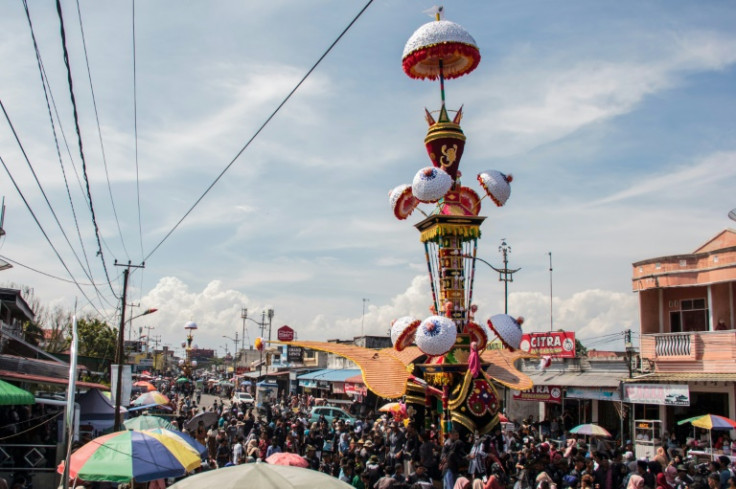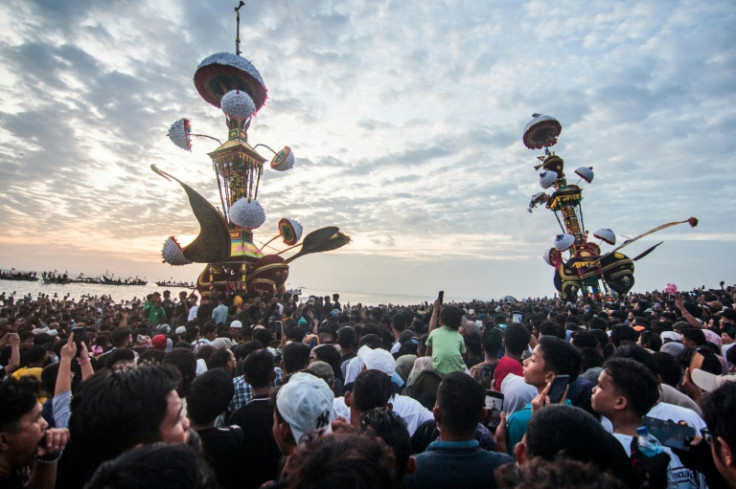
Thousands flocked to a coastal town in western Indonesia Sunday to watch a clash between ornate mythical effigies before they are cast into the sea, in a centuries-old ritual born from a Shiite holy day of mourning.
Dozens of men paraded the two winged, horse-shaped effigies across the town of Pariaman on Sumatra island, bringing traffic to a halt in the city centre as the festival known as Tabuik got under way.
The 12-metre-high effigies were shaken and deliberately knocked into one another as they were brought to a nearby beach before being toppled into the surf to the backing track of a traditional band.
Though the festival has its roots in the Muslim holy day of Ashura -- when Shiites mourn the death of Imam Hussein, a grandson of the Prophet Muhammad -- visitor Riko Putra, 38, found the Tabuik festivities "exciting".
"From what I saw on the beach... it was more like a euphoria, like welcoming a victory," Riko told AFP.
The origins of the festival were imported to western Indonesia by Shiite Muslim soldiers from India under British rule in the 19th century.
The ritual dramatises in the abstract the battle of Karbala in modern-day Iraq, where Imam Hussein and his retinue were killed by a larger army.
The effigies are shaped like Buraq, a winged horse-like creature often depicted with a human head believed to have picked up Hussein's remains after the 7th-century battle and carried them to heaven.
Once a more traditionally Shiite custom, Tabuik drew protests from predominantly Sunni Muslim locals, prompting organisers to alter the celebrations to better suit local mores, procession organiser Zulbakri, who goes by one name, told AFP.
"In the past, there were these rituals... rituals identical with the Shiites' worship. That was why it was changed into the procession," he said.
"Because it was not in line with the customs and philosophies of the (local) people, the form of Tabuik was completely changed."
The festival's main event -- the effigy parade and their casting into the sea -- was once held on the 10th day of the Islamic month of Muharram, coinciding with the holy day of Ashura, which holds different significance to Shiites and Sunnis.
But like the celebration itself, the date has also changed so the festival simply falls on a weekend within that month -- which also helps draw visitors, Zulbakri said.
Shiites and Sunnis agree on the fundamentals of the faith, but the two branches split because of a centuries-old divide over who should succeed the Prophet Muhammad.
Shiite Islam is not one of Indonesia's six official religions, but around one million practitioners live in the country, and while attacks on the community are rare, adherents have faced persecution.
As it shed its explicitly Shiite roots, Tabuik now brings in tourists from across Indonesia and abroad, and is one of the main attractions in the town.










